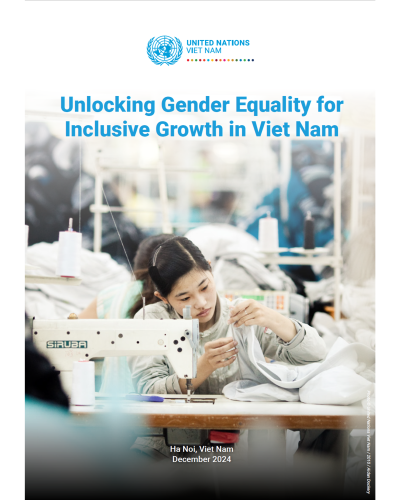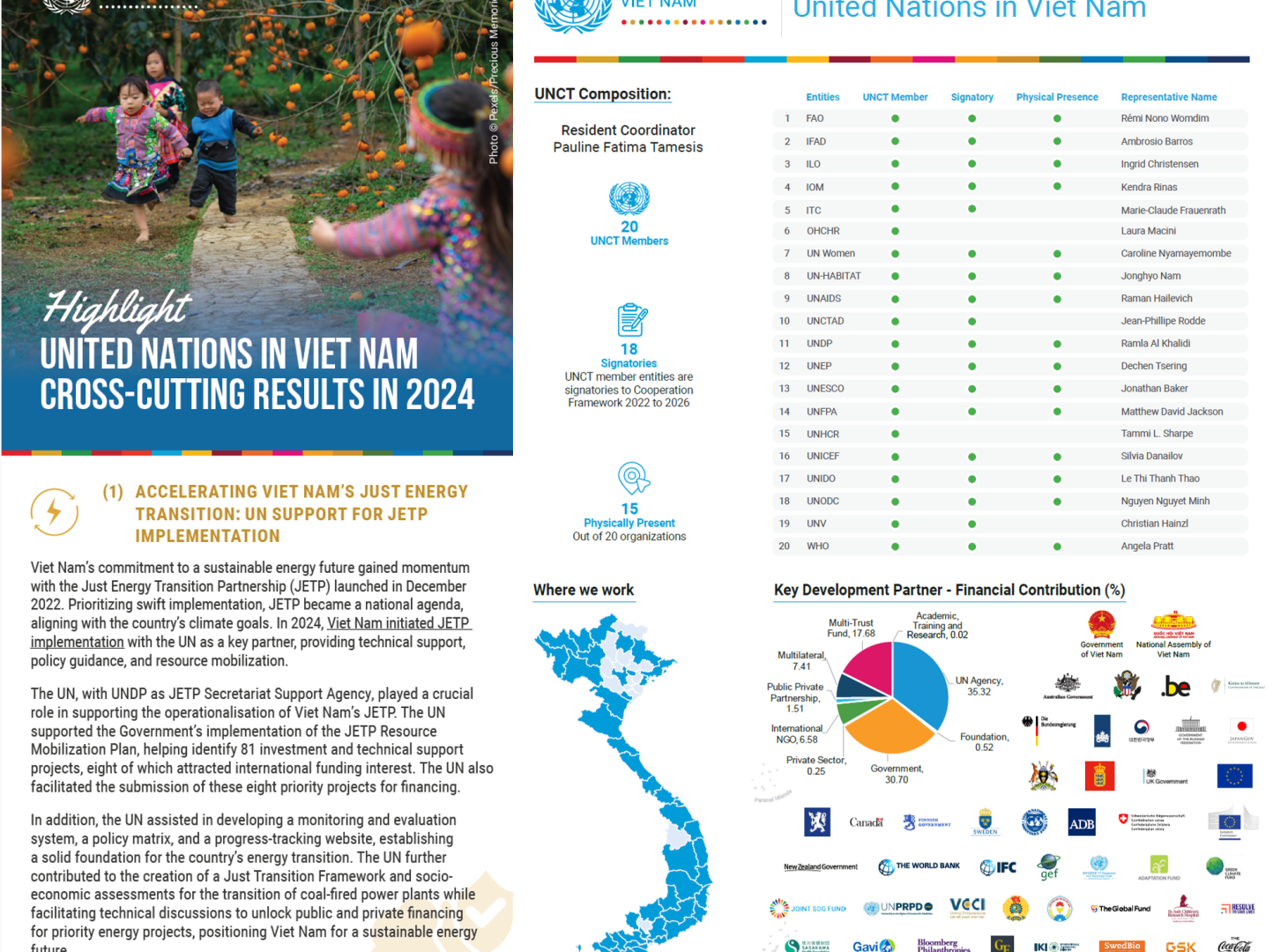Unlocking Gender Equality for Inclusive Growth in Viet Nam

The Common Country Analysis (CCA) is a diagnostic tool and a strategic pivot of the United Nations (UN) development system, providing independent, reliable analysis to inform policy and support the country’s sustainable development The UN in Viet Nam prepared a comprehensive CCA in 2021 to guide the formulation of the UN Sustainable Development Cooperation Framework 2022–2026. The 2021 CCA examines a wide range of thematic issues shaping Viet Nam’s sustainable development, with a focus on the impact of the COVID-19 pandemic and vulnerable populations at risk of being left behind. It is accessible here on the UN in Viet Nam’s website.
According to the UN Development Coordination Office (UNDCO) guidance, the CCA should be updated annually to reflect the latest changes in development contexts and to inform the policy and programming work of the UN development system in the country. In this regard, the UN in Viet Nam conducted the 2023 CCA update, with a focus on ‘the investment in gender equality and women’s economic empowerment to advance economic prosperity and SDGs in Viet Nam.’
This CCA update is centered on the theme of investing in gender equality for three major reasons. First, the global pace of achieving gender equality is slow. In Viet Nam, the second Voluntary National Review (VNR) 2023 observed that, despite some improvements in various gender indicators, progress in SDG 5 (gender equality) remains difficult to fully assess due to inadequate updated and disaggregated data. This issue is also underlined in the National Review of the 30-Year Implementation of the Beijing Declaration and Platform for Action in Viet Nam, submitted by the Government of Viet Nam to the Beijing+30 Review in 2024. The VNR highlights major challenges, including the persistence of violence against women and children, high rates of child marriage and early childbearing among ethnic minority women, and constraints on women’s ability to participate in the labor market.
Second, Viet Nam’s Gender Equality Profile emphasizes that, at an aggregate level, closing the gender gap will require shifting the focus from providing basic human rights to addressing the impediments and biases affecting women’s economic empowerment, participation, and security. Moreover, there is a need for analytical evidence to inform advocacy, policy orientation, and programming to support Viet Nam in making robust investments in gender equality—not only to advance the SDG 5 agenda but also to realize economic prosperity and achieve other SDGs by 2030. Finally, the Sector-Wide Approach (SWAP) Scorecard report of the UN in Viet Nam requires an in-depth analysis of the 2021 CCA on gender equality to further improve UN investments in this area.







